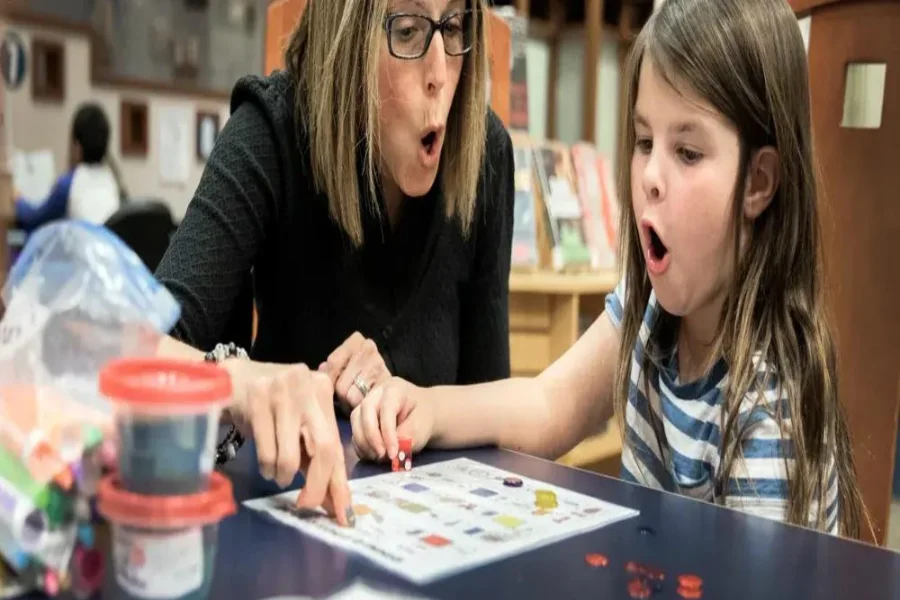What are the Most Common types of Learning Impairment?
Source: encrypted-tbn0.gstatic
What are the Most Common types of Learning Impairment?
A Learning Difficulty refers to a condition where the child’s capability of acquiring information, processing that information, retaining it and using it for further use is poorly developed. This situation arises when the child’s brain areas dedicated to processing signals, especially those in charge of learning skills, do not function as they should, due to the child’s struggles with the way they read, write, listen, speak, or solve problems.
Every learning impairment has its specific attributes impacting specific learning skills and poses different challenges.
Gaining insights into the different types of learning impairment serves to be beneficial in getting the right academic aid needed for the need to gain academic excellence in a regular classroom setting and attain their true potential.
Table of Content
5 Most Common Learning Impairments
Learning Impairments can hamper the child’s academic progress drastically, which affects their overall well-being, including their futures. So it becomes imperative to acquire knowledge of the most common learning impairments so that the desired academic aid and personal guidance can be given to the child, fostering their academic and socio-emotional growth.
Learning Impairments affect the most crucial learning competencies of reading, mathematics and fine motor skills that are needed throughout the child’s academic journey and also in the future course of life.
Listed below are the five most common 5 learning impairments:
Dyslexia
This affects reading abilities. Children with Dyslexia fail to connect the letter to its corresponding sound due to which prevents them from reading fluently, which further impacts their ability to recognise words. It usually results from difficulties in processing the phonological part of language.
Dysgraphia
Dysgraphia influences the fine motor skills, mainly the writing abilities, of the child. Children with dysgraphia fail to form letters correctly and cannot clearly express their thoughts on paper.
Dyscalculia
This math-related condition affects number sense. Learners with Dyscalculia may have difficulty with basic arithmetic, understanding quantities, telling time, or handling money.
Central Auditory Processing Disorder (CAPD)
CAPD refers to a condition where the brain’s capability to process auditory information is poorly developed, due to which understanding spoken language and holding proper conversation is a struggle, impacting their overall communication and social interaction skills.
Nonverbal Learning Disorders (NVLD)
As the name suggests, NLVD refers to a non-verbal disorder where the child fails to decode facial cues or expressions, as they have problems with spatial awareness and poor motor coordination.
Understanding the important attributes and impacts of the learning impairments helps to determine the real areas of concern, and accordingly, suitable and appropriate intervention plans can be initiated, suiting each child’s needs.
For more details of the LD Course, call WhatsApp on +919321024137 +9198699866277
To download the brochure of the LD Course, Click Here!

Source:demandstudios
Why is it Important for Teachers to Understand Types of Impairment?
Learning Impairment has a severe impact on the overall holistic progress of the child, leading to academic gaps affecting their socio-emotional well-being. Understanding various types of impairment helps to determine the real areas of concern for the child, and accordingly, strategies can be effectively implemented, promoting the child’s learning.
Reasons why understanding types of impairment is necessary:
Timely identification
When the signs of struggle are evident, teachers can initiate the intervention plan at an early stage, making learning a joyous process for them.
Customised Teaching Techniques
Since every child has different key strengths and diverse learning styles, gaining knowledge of learning impairments helps teachers to focus on their key strengths and accordingly customize teaching methods to suit the learner’s needs.
Conducive learning space
Knowing the challenges of children with special needs helps teachers to create a conducive learning space that fosters learning for all children, enabling every child to be fruitfully engaged in the classroom activities.
Meaningful partnerships with parents
Teachers with a deep understanding of learning impairments can work with parents and other stakeholders involved in the child’s journey and ensure that the child gets the best inclusive educational strategies, enhancing their learning process.
Equality in educational opportunities
Identifying Types of Learning Impairment makes sure that each child gets equal opportunities to take part and perform, regardless of their difficulties.
Makes the child self-confident
With consistent efforts, there is a shift in the progress graph of the child, helping him feel confident in his abilities, and helping them be motivated to work harder for better results.
Knowing about types of impairment is not just helpful – it’s crucial. It prepares teachers with the information to support various students and make sure that no student is left behind due to a lack of awareness or resources.
For more details of the LD Course, call WhatsApp on +919321024137 +9198699866277
To download the brochure of the LD Course, Click Here!

Source: wsimg
How to Make a Meaningful Difference in Students’ Lives?
Children with diverse learning needs are often gifted individuals with normal intelligence. Providing them with teaching methods that help them process information correctly makes a positive impact on their academic progress. Making a meaningful difference in the students’ lives begins with observing the child keenly to understand their unique needs, their strengths, and then capitalising on their strengths so that they attain their real potential.
An empathetic attitude and a positive mindset of the teacher help to make far-reaching impacts on the child’s self-confidence, boosting their self-esteem significantly impacts both the academic and emotional growth of their students.
A possible way for teachers to improve teacher practice is to take a Learning Difficulties Course. Vidhyanidhi Education Society (Govt. Regd.), a premier teacher training Institute, has been at the forefront of introducing top-notch learning disability programs that empower teachers to understand the challenges of children with special needs and train them efficiently to handle their challenges well.
Here are practical ways to make a long-term difference:
Know Your Students Well
As every child processes information in different styles, it is important to observe each child to understand the learning modes.
Adapt Teaching Strategies
To suit the learning challenges, various learning methods like visual aids, simplified instructions and hands-on activities are used to teach learners with varied needs.
Build a Safe and Optimistic Environment
Through regular reinforcement, trust is enhanced. This leads to a supportive classroom where students feel secure and motivated to learn.
Stay Updated Through Training
Learning Difficulties Course helps educators to stay up-to-date with current relevant information. It helps them to identify symptoms of specific disabilities and respond effectively.
Support Inclusive Practices
Make sure classroom materials and activities are easily available to all. Inclusion encourages students with difficulties to participate fully and feel appreciated.
Converse Openly with Parents
Keep guardians informed of progress and concerns. Working as a team ensures better outcomes for the child.
Small Wins are celebrated.
The smallest headway should be celebrated. This builds student confidence and motivation.
Educators are prepared through the Learning Difficulties Course to make customised plans.
The educators make a difference in learners’ journeys through small and consistent efforts.
Transform lives with an LD Course from Vidhyanidhi Education Society (Govt. Regd.)!
For more details of the LD Course, call WhatsApp on +919321024137 +9198699866277
To download the brochure of the LD Course, Click Here!
FAQs
What is the Most Common Impairment?
Dyslexia is the most common learning impairment, particularly affecting word recognition and spelling. Vidhyanidhi Education Society highlights courses for support in this area.
What is Another Name for Impairment?
Disability is another name for impairment. The term describes the limitations for learning and abilities in daily life due to physical or cognitive conditions.





